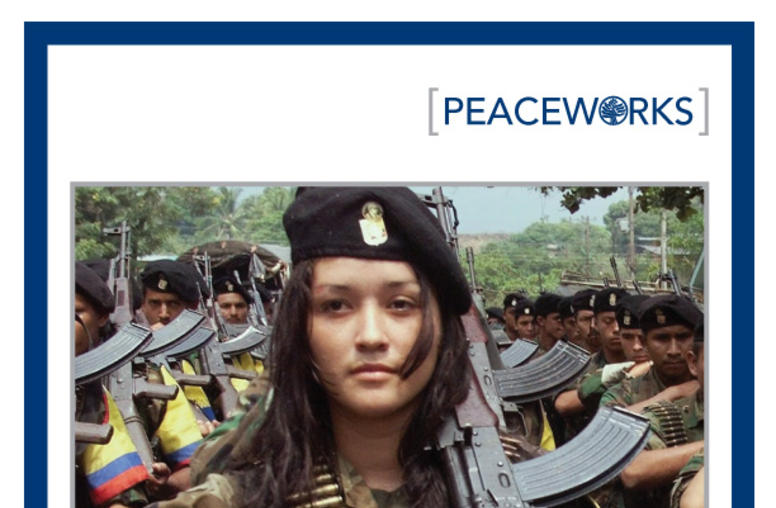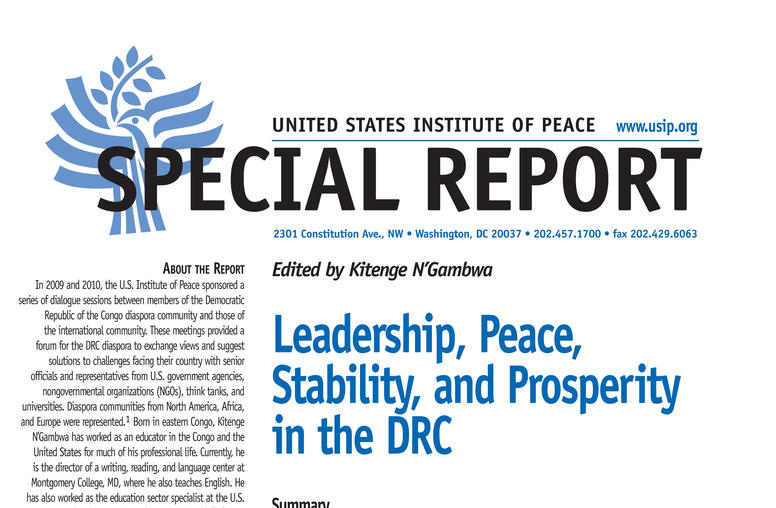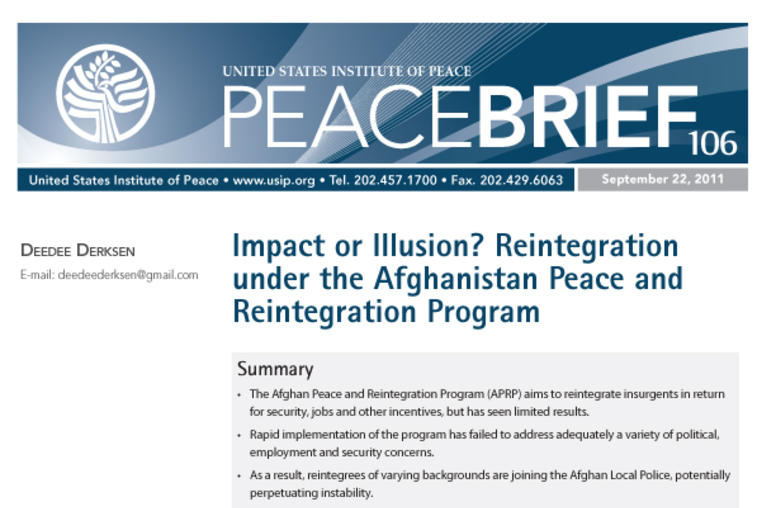Publications
Articles, publications, books, tools and multimedia features from the U.S. Institute of Peace provide the latest news, analysis, research findings, practitioner guides and reports, all related to the conflict zones and issues that are at the center of the Institute’s work to prevent and reduce violent conflict.
Praise for "International Mediation in Venezuela"
“All too often, our understanding of conflict dynamics in a given region is from 80,000 feet up and we thus miss the local texture of relationships that matter on the ground, as well as the non-linear events that can both benefit or plague peacebuilding. This book is the opposite—it is a cliff-hanger, telling the story of the role of international third parties intervening in the Venezuelan conflict (2002–2004) from the perspective of two of the third party actors. The narrative is rich in c...
"International Mediation in Venezuela"
What was the situation in Venezuela at the start of the Carter Center’s intervention? What did the Carter Center aim to achieve in Venezuela? The ultimate goal of preventing violence was achieved by the intervention, but the underlying issues producing polarization and new forms of political exclusion were not resolved. What explains the mixed results of such an unusual international intervention?
Nigerian Foreign Minister Lays Out Ambitious New Agenda for Country
Nigeria’s Foreign Minister, Ambassador Olugbenga Ashiru, visited the U.S. Institute of Peace on September 29 to lay out President Goodluck Jonathan’s agenda.
State Dept.’s Schwartz Calls for Stronger Humanitarian Capabilities
In tackling complex humanitarian crises in the Horn of Africa and elsewhere, the U.S. government will “proceed on two fronts—building our national capacities while strengthening the multilateral system of humanitarian response,” Eric P. Schwartz, the assistant secretary of state for population, refugees, and migration told an audience at the United States Institute of Peace (USIP) on September 28.
"Customary Justice and the Rule of Law in War-Torn Societies"
What dilemma does customary justice present to international justice actors and how does this volume address it? What challenges or constraints do rule-of-law practitioners face when engaging customary justice systems? What are the arguments against engaging with customary justice systems? Why is it so important for international justice practitioners to take customary justice systems into account? What principles does the volume set forth to guide policy and programming in environmen...
Libyan Official Calls for Libyan Lead in Transition
Libya’s National Transitional Council (NTC), the immediate successor to the ousted regime of Col. Moammar al-Qaddafi, needs significant international help to prepare the North African nation for a democratic future, but Libyans themselves must be in the lead, and outside governments and institutions must show patience as Libya tries to address its many challenges, a key senior official in Libya’s new government told an audience at the United States Institute of Peace (USIP) on September 23.

Gender, Conflict, and Peacebuilding
A new study reviews the state of research on gender and conflict and calls for increased emphasis on projects that include men and boys, sexual violence in conflict zones, and the relationship between gender identities and violence.
The Secrets of Peacebuilding: A Conversation with Military Officers
Ending or preventing conflict almost always means talking to the people who understand it best: the women. It was one of many pieces of sage advice USIP Chief of Staff Paul Hughes gave to a group of Air Force officers visiting USIP in September as part of a tour of Washington. The officers are studying the role of the Air Force officer and his or her role in political-military strategy.

Leadership, Peace, Stability, and Prosperity in the DRC
People living in the DRC should band together with Congolese diaspora to develop a vision for DRC’s future that can drive governance reform. In this Special Report, diaspora leaders share ideas for invigorating the economy, judiciary, health, education, and democracy.

Impact or Illusion? Reintegration under the Afghanistan Peace and Reintegration Program
The Afghan Peace and Reintegration Program (APRP) aims to reintegrate insurgents in return for security, jobs and other incentives, but has seen limited results.